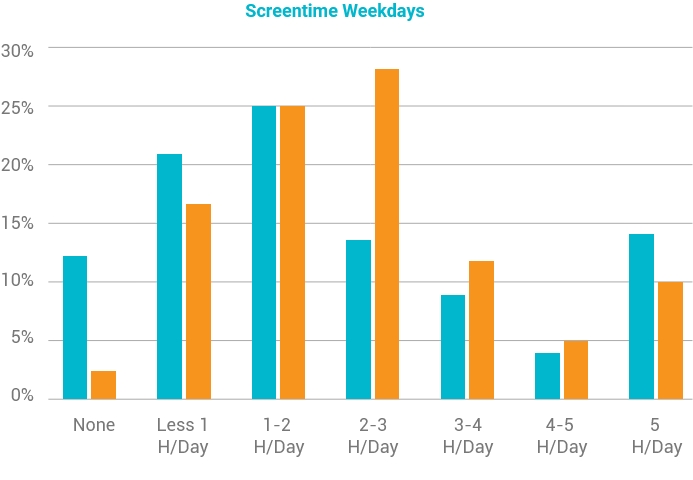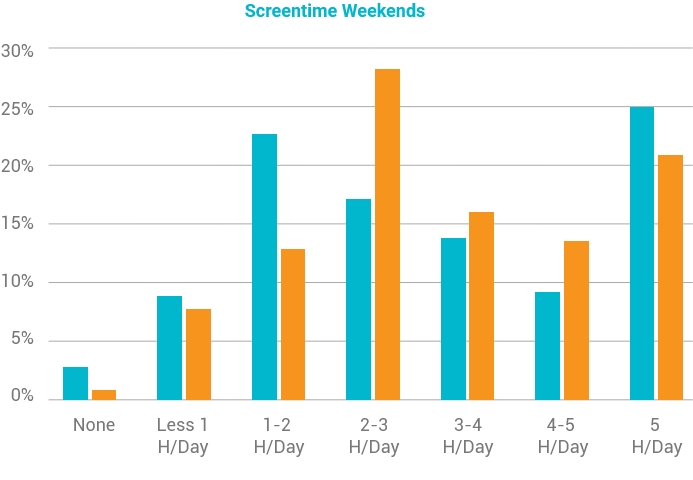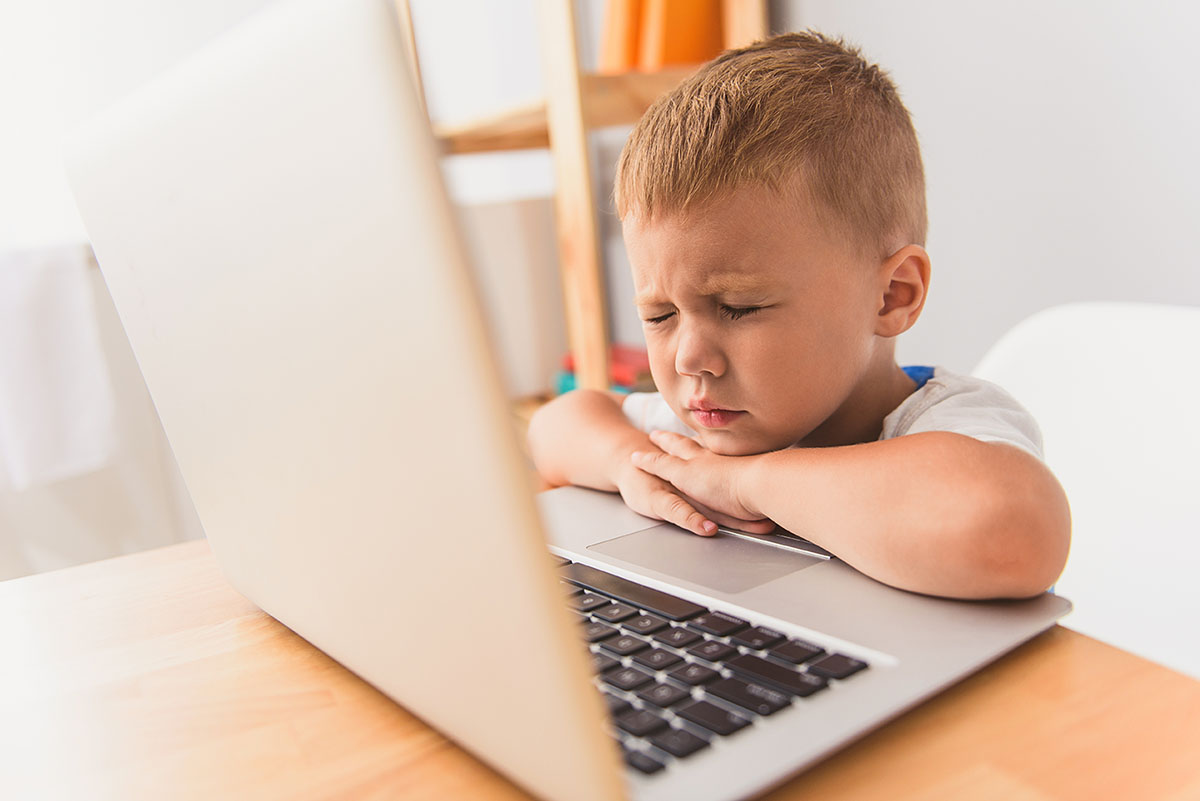According to the report, the percentage of children that spend 5 hours or more a day using a screen during the week has decreased from 14% Pre Pandemic to 10% Post March 2020. And the number of children that spent 5 or more hours a day using a screen during the weekend has decreased from 25% to 21%.
There are countless articles that have been published in the last 18 months about how Covid has impacted children’s screentime. While we did find through our research, as many others did, that overall screentime has increased, we wanted to share a more balanced view of the data. Overall, between pre and post-Covid excessive screen use (5+ hours a day) has decreased for 3rd-6th class students. That is interesting!
The negative impacts of too much screentime have been well researched. It can cause disruptions to sleep, impact mood and cause eye strain. However, as more and more of society relies so heavily on the internet, the use of screens is becoming more and more prevalent. Instead of focusing on the negative impacts of screentime, let’s focus on teaching young people how to manage their relationships with screens and teach them mindful use of devices so they can succeed in our technology-focused world. The internet and screens are amazing tools but as with everything, an excess can lead to problems. Managing screentime is so important if we want to help young people build healthy relationships with screens. It's about balance and understanding the pressures and expectations of our modern society. It is unlikely that any of us could go a day without looking at a screen. So, let’s make sure we are realistic in our views on screentime and approach managing screentime in a mindful way. And hopefully, we can see the trend of informed and balanced use of screens, continue.




